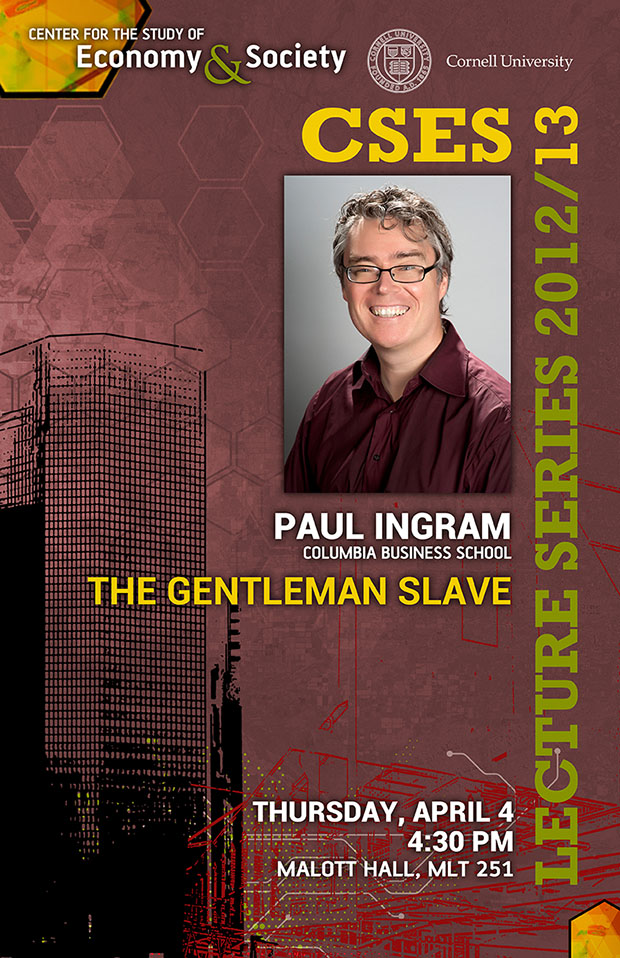Paul Ingram, Columbia Business School
The Gentelman Slave
- 4:30-6:00PM
- Malott Hall 251

Please join us for the final lecture in the 2012-2013 CSES Lecture Series where Paul Ingram will present his research on “The Gentlemen Slave.”
Abstract
We consider the influences on entering into ‘dirty business’ by which we mean economic activity that violates cultural values. We consider individual disposition to violate norms as a function of status, social contagion in a network, where status determines influence, and the role of a social movement to ignite attention to the norms and their violation. We analyze who entered the Liverpool slave trade. We find that high status Gentlemen were more likely to do so, and that they were highly influential on the behavior of their network partners. The abolition movement affected an increase in the magnitude of social influence, and shifted the balance of influence in favor of non-slavers.
About
Paul Ingram is the Kravis Professor of Business at the Columbia Business School, and Faculty Director of the Columbia Senior Executive Program. His PhD is from Cornell University, and he was on the faculty of Carnegie Mellon University before coming to Columbia. He has held visiting professorships at Tel Aviv University, Shanghai Jiao Tong University and the University of Toronto. The courses he teaches on management and strategy benefit from his research on organizations in the United States, Canada, Israel, Scotland, China and Australia. His research has been published in more than forty articles, book chapters and books. Ingram’s current research projects examine the influence of intergovernmental organizations on foreign direct investment and democratization; the structure and efficacy of managers’ professional networks in China and the United States; and the effects of networks and institutions on the evolution of the Glasgow shipbuilding industry. He has served as a consulting editor for the American Journal of Sociology, a senior editor for Organization Science, an Associate Editor for Management Science and on the editorial boards of Administrative Science Quarterly and Strategic Organization.

